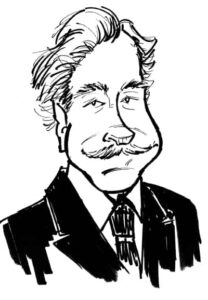In 2010, the world had 16 people aged 65 and over for every 100 adults between the ages 25 and 64, almost the same ratio as in 1980 (http://www.economist.com/node/21601248/print). By 2035, the UN expects the number to have risen to 26. The U.S. will see its old age ratio increase 70% to 44 people aged 65 and over for every 100 adults between the ages 24 and 64.
Conventional Wisdom
The conventional wisdom is that a larger proportion of the population made up of older people means slower economic growth, because the need to draw down their wealth to live, and reduced saving; leads to higher interest rates and falling asset values. However, the notion of a sharp division between the working young and the idle old misses another trend, the emerging gap between skilled and unskilled workers at all ages. Employment rates are falling among younger unskilled workers, whereas older skilled folk are working longer. Some 65% of American men aged 62 – 74 with a professional degree are still in the workforce; compared with 32% of men with only a high school diploma. It’s not a hard pattern to explain. Less skilled workers often have manual jobs that get harder to perform as you get older. The relative pay of the less skilled workers has fallen, making retirement on a public pension more attractive; for the unemployed, who are also likely to be less skilled, retirement is a terrific option.
Working Longer
Why are older skilled workers staying in the work force longer? Public policy is partly responsible. Social security pensioners are economically incented to delay drawing social security benefits until 71 years of age. Further, rising life expectancy, combined with the replacement of generous defined benefit pension plans with stingier defined-contribution ones means even the better-off must work longer to have a comfortable retirement. However, the changing role of work also plays a big role. Pay has risen sharply for the highly educated, and those people continue to reap rich rewards into old age because these days the educated elderly are more productive than their predecessors. A smaller workforce need not dampen growth if productivity surges. This is not something most would expect to come about as a result of an ageing population. Technological change certainly reinforces that shift: the skills that complement computers, from management expertise to creativity, do not necessarily decline with age.
This trend will benefit not just fortunate oldies but also, in some ways, society as a whole; as elder skilled workers continue contributing to economic productivity.
For over twenty-five years, CFOs2GO and CIOs2GO have provided innovative staffing and consulting opportunities to proven executive leaders in finance, accounting and technology. I have consulted with over one hundred executives to help them plan for their post-62 ambitions – balancing their concerns for work, career, family, money and their sense of civic responsibility and giving back to the country that gave so much to them. The societal benefits are significant. Growth will slow less dramatically than expected; government budgets will be in better shape, as high earners pay taxes longer.
 Bob is the Founder and CEO of 2GOAdvisoryGroup, which he first opened back in 1986. During his start in public accounting and venture capital, he discovered firsthand the importance of looking beyond the numbers to see the motivations and drivers that influence decisions. He observed and learned from both the successes and failures of the start-ups and companies they served, taking note of the actions of young founders and entrepreneurs. Entrepreneurs are a rare breed, and it is in their spirit of growth and exploration that Bob found himself drawn.
Bob is the Founder and CEO of 2GOAdvisoryGroup, which he first opened back in 1986. During his start in public accounting and venture capital, he discovered firsthand the importance of looking beyond the numbers to see the motivations and drivers that influence decisions. He observed and learned from both the successes and failures of the start-ups and companies they served, taking note of the actions of young founders and entrepreneurs. Entrepreneurs are a rare breed, and it is in their spirit of growth and exploration that Bob found himself drawn.
